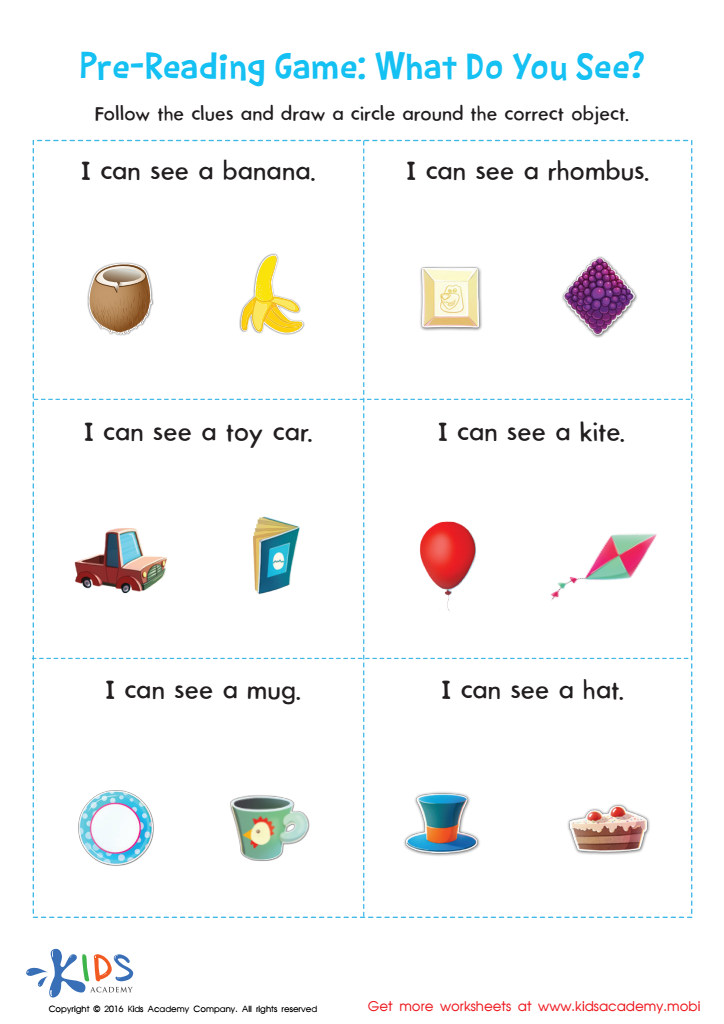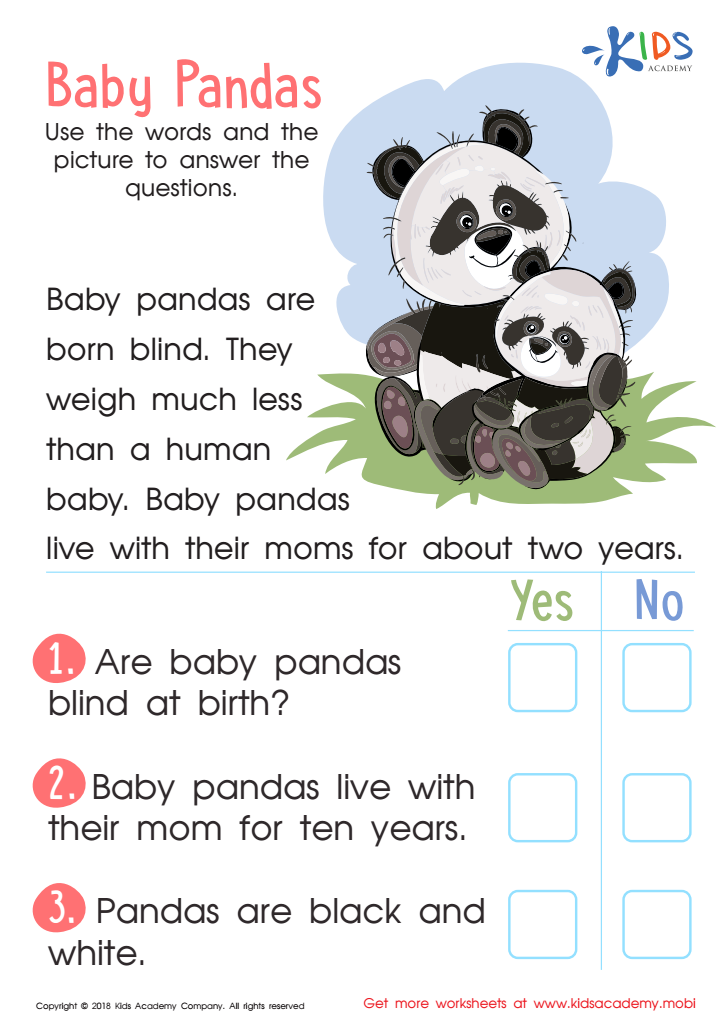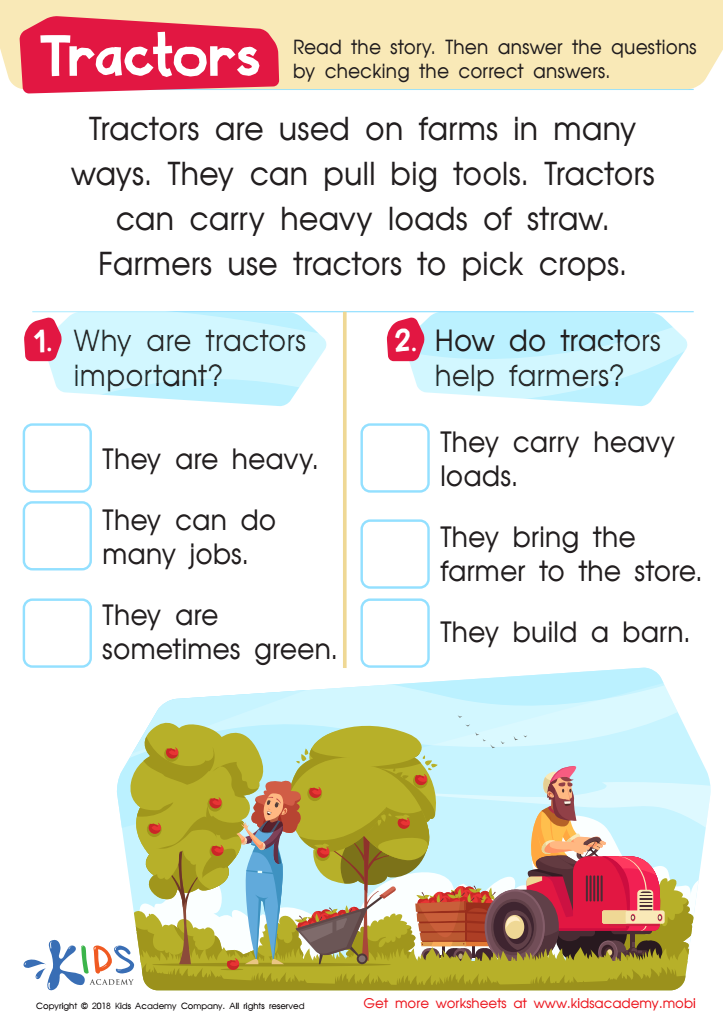Counting practice Reading Non-Fiction Worksheets for Ages 3-9
4 filtered results
-
From - To
Enhance your child's learning journey with our Counting Practice Reading Non-Fiction Worksheets, specifically designed for ages 3-9! These engaging worksheets combine core counting skills with fascinating non-fiction content, sparking curiosity and enhancing reading comprehension. Each activity is carefully crafted to provide children with the opportunity to practice numbers while exploring a range of subjects, from animals to geography. Perfect for parents and educators seeking to reinforce foundational math skills alongside literacy. Whether used in the classroom or at home, these lively worksheets make counting a fun and interactive experience for young learners. Start counting and discovering today!


Pre–reading Worksheet: What Do You See?


More Octopus Facts Worksheet


Baby Pandas Worksheet


Tractors Worksheet
Counting practice and reading non-fiction are essential components of early childhood education for children aged 3-9. Engaging in counting activities helps children develop foundational math skills, enhancing their ability to recognize numbers, understand quantities, and perform basic calculations. This early exposure lays the groundwork for more complex mathematical concepts, fostering a love for numbers that can benefit them in later academic pursuits.
Similarly, reading non-fiction cultivates curiosity and promotes critical thinking. Non-fiction texts expose children to real-world information, encouraging them to ask questions and explore various subjects such as science, history, and nature. This type of reading helps develop vocabulary, comprehension skills, and a greater understanding of the world around them. Moreover, it encourages discussions between parents and children, enriching the learning experience through shared knowledge.
Parents and teachers should care because these activities resonate deeply with childhood development. They not only build essential academic skills but also help shape a child's social-emotional growth by boosting confidence and curiosity. Thus, incorporating counting practice and non-fiction reading into daily routines empowers children with lifelong learning skills, setting them on a path to success academically and personally.
 Assign to My Students
Assign to My Students















